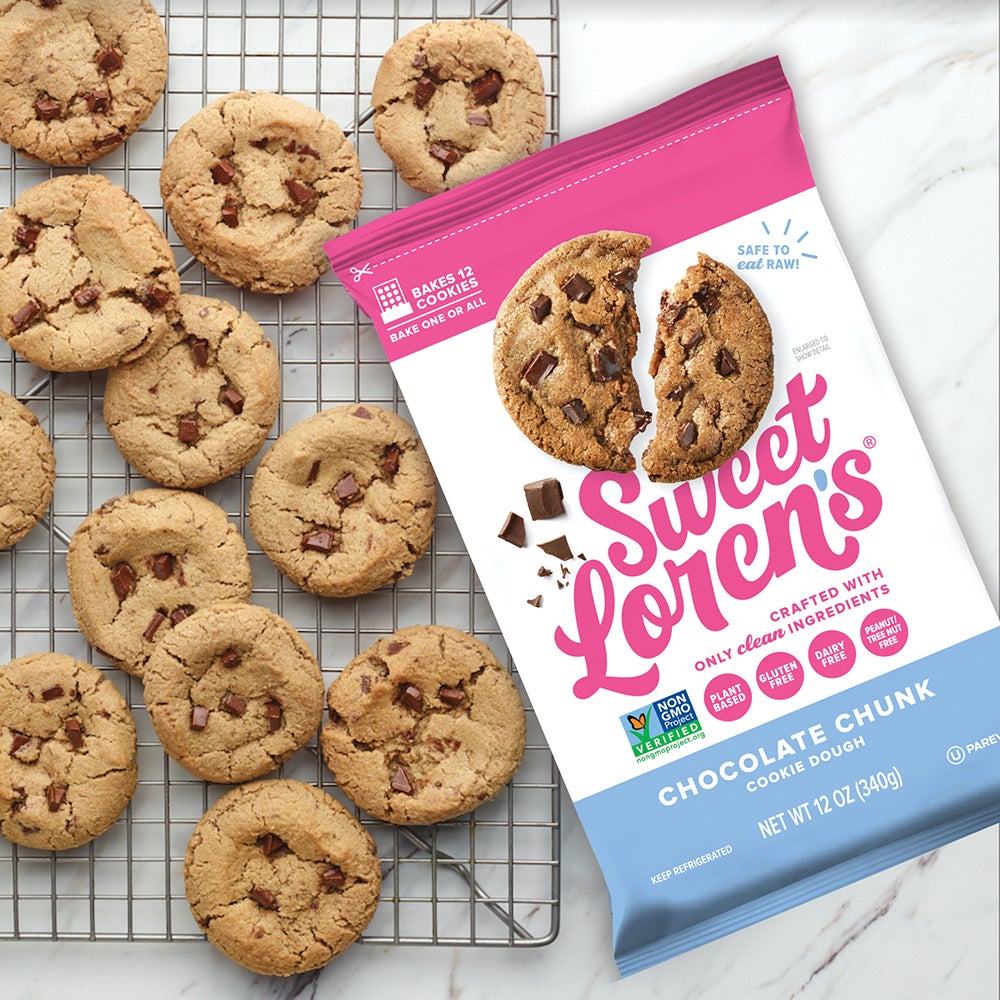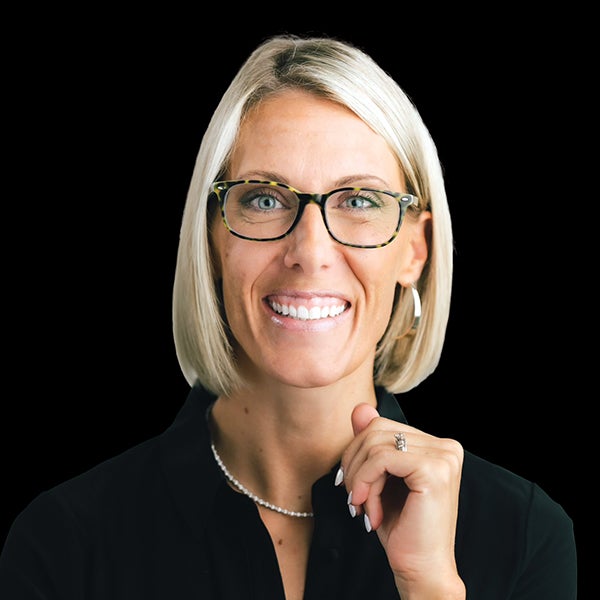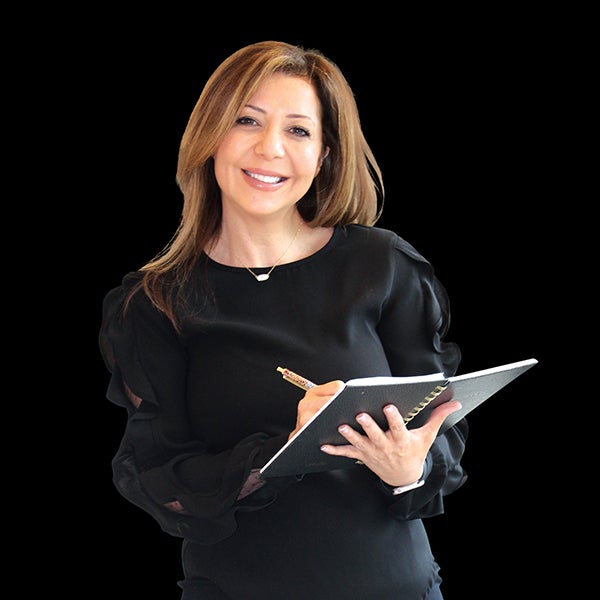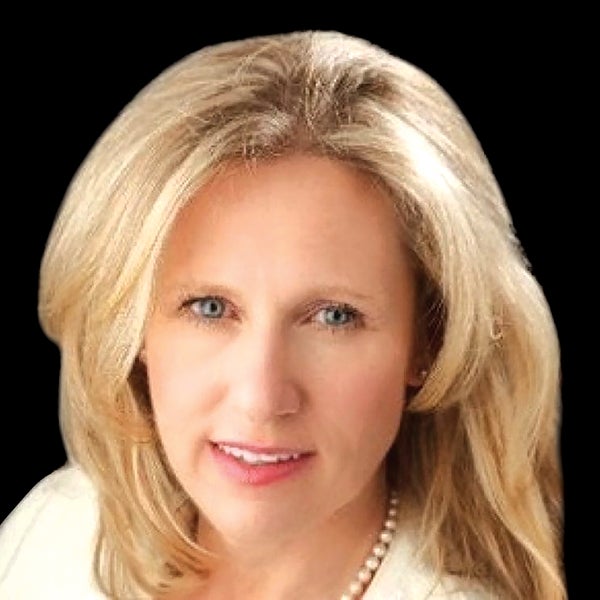10 Founders On the ‘Aha’ Moments That Unlocked Massive Growth: ‘It Felt Like a Secret Hidden In Plain Sight’
New companies rarely get off the ground without some roadblocks, setbacks, and unforeseen decisions. Here, 10 founders describe the pivots that catapulted their profitability.

This story appears in the May 2024 issue of Entrepreneur. Subscribe »
Sometimes it can feel like there’s just one way to do something. You had an idea, figured out a strategy, and began to execute on your vision. It took lots of work to get to the execution phase, so shifting directions — or heaven forbid, turning around — can feel like a nonstarter. But very, very rarely is there just one way to do something. And often, companies’ big breaks happen when their founders are open to reassessing fundamental aspects of their original ideas. Here, ten founders explain unforeseen realizations that unlocked millions of dollars in growth.
Unlock: When you hit a wall, revisit your bigger idea.

When Ben Witte launched his brand Recess in 2018, his mission was simple: He wanted to make nonalcoholic relaxation beverages. CBD was hot at the time, thanks to the recent passage of the Hemp Farming Act, so he launched a line of CBD-infused sparkling waters — and then hit a problem. Consumers liked the drinks, but many retailers wouldn’t stock CBD, because the FDA hadn’t offered guidance on it. Witte faced a choice: Double down on CBD, or expand elsewhere?
To make that decision, he reflected on his mission. His goal was to make nonalcoholic relaxation beverages — and CBD wasn’t the only way to do that! He looked for other ingredients and discovered magnesium L‑threonate. “In 2020, no one was talking about magnesium, so it kind of felt like a secret hidden in plain sight,” Witte says. It’s believed to have a mood-lifting effect. A year later, he used it in a new line called Recess Mood, a line of relaxation drinks that landed in national retailers. Nowadays, CBD accounts for less than 10% of sales. “Would I have thought CBD would be a much bigger part of our business now? Yes,” Witte says. “But it’s important to know what details you can adjust and what you should stay true to.”
Unlock: Give customers what they want, no matter the cost.
 Soon after founding their company Pair Eyewear in 2017, Sophia Edelstein and Nathan Kondamuri started a private Facebook group for their customers. Pair sells glasses that magnetically connect with “top frames” in a variety of different patterns and colors, so customers can personalize their glasses like any other accessory. The Facebook group was a space where customers could share feedback and show off the fun ways they were styling the frames.
Soon after founding their company Pair Eyewear in 2017, Sophia Edelstein and Nathan Kondamuri started a private Facebook group for their customers. Pair sells glasses that magnetically connect with “top frames” in a variety of different patterns and colors, so customers can personalize their glasses like any other accessory. The Facebook group was a space where customers could share feedback and show off the fun ways they were styling the frames.
But pretty quickly, Edelstein says, they started hearing one thing over and over: “‘I need more styles,'” Edelstein says. “That’s what we kept hearing from our customers.” Back then, Pair only offered 10 styles of top frames, and their offshore manufacturers’ long lead times and large minimum order quantities made it impossible to launch more than one collection a season. With their current manufacturing process, what their customers wanted was impossible.
Instead of giving up, they researched what it would take to make this request a reality. The answer was daunting: They’d need to build their own proprietary manufacturing process in California, which would allow them to produce any top-frame style on demand. It took years to do, but they’re now able to satisfy their customers’ desire for more with a new collection almost every week, resulting in 24x revenue growth between 2020 and 2023.
Unlock: Find your ideal customer (and it might not be you!).

Loren Castle loves sweets but wanted to avoid processed foods, and she assumed many others felt the same. That’s why she created Sweet Loren’s, a cookie dough brand formulated with whole grains and no dairy. But on shelves, her brand was competing against big players like Pillsbury or Nestlé Toll House — and to survive, she had to lower her prices even though her ingredient costs were much higher. “It wasn’t a healthy business,” Castle says.
She needed a way to distinguish her brand — and the solution came from customers she never expected to serve. People saw her dairy-free dough, and then emailed to ask if she’d make a version that excluded whatever they needed to avoid — typically allergens like gluten, peanuts, tree nuts, and eggs. She reformulated her product to accommodate all of those, and it was a hit. Nine months later, Sweet Loren’s became an exclusively allergen-free product. No longer competing with traditional brands, she was able to raise her price. “All of a sudden, we had a healthy business, a healthy margin,” she says. “We really built a moat around us.” In the years since, the brand has expanded into over 25,000 stores nationwide.
Unlock: Don’t try to do everything yourself.
 BookSmarts Accounting & Bookkeeping founder Jenny Groberg had been slowly growing her business for 10 years — and then, one day at home, she fell and sustained a brain injury. If she wanted to recover, a doctor told her, she’d need to give up working and focus on her health.
BookSmarts Accounting & Bookkeeping founder Jenny Groberg had been slowly growing her business for 10 years — and then, one day at home, she fell and sustained a brain injury. If she wanted to recover, a doctor told her, she’d need to give up working and focus on her health.
Groberg had long kept her company’s financial affairs close to the chest, but that was no longer an option. She promoted one of her employees, Emily VanBrocklin, to COO, and shared everything. “It was kind of awful, actually, because that was something I kept private,” Groberg says. “But that was one of the switch points. I offered her profit-sharing — which was the best thing I ever did. Then she had skin in the game.”
VanBrocklin ran the company for a few years while Groberg was hands-off, healing. And when Groberg returned to work in 2023, they split up work based on strengths, with VanBrocklin managing the team and being the point of contact for clients, and Groberg focusing on growth and community outreach. “That should be the role of every CEO, to delegate as much as you possibly can [to] go out and keep building,” Groberg says. Being able to divide the work paid off; with over 50% client growth, it was the first year that BookSmarts surpassed $1 million in revenue.
Unlock: Launch variations on your hero product.
 In 2016, Nina Farzin quit her job as a clinical pharmacist to spend more time growing a company she’d started on the side, Oogiebear. The business sold a proprietary tool she’d developed that removed boogers from babies’ tiny nostrils, allowing them to breathe better. The original product had been a hit, getting picked up by major retailers. Now she wanted to expand the company, but she wasn’t sure of her next move.
In 2016, Nina Farzin quit her job as a clinical pharmacist to spend more time growing a company she’d started on the side, Oogiebear. The business sold a proprietary tool she’d developed that removed boogers from babies’ tiny nostrils, allowing them to breathe better. The original product had been a hit, getting picked up by major retailers. Now she wanted to expand the company, but she wasn’t sure of her next move.
“I noticed that many companies with great products become one-hit wonders,” Farzin says. “I didn’t want that for myself.” She wanted to launch additional products — but as a self-funded founder, she needed to be careful. Ultimately, she decided to build upon what she already knew: She started with a case and multipack of her booger remover, to make it simpler for parents to travel with the booger tool. Then she launched a nose-to-toe balm, inspired by her own struggle to find a chemical-free balm to soothe her kids’ sensitive skin. In the five years since, the company has grown from $1 million to $5 million-plus in annual sales. “With the variations, I realized that there is no shortage of ideas here,” Farzin says.
Unlock: Find a better way to package your product.

In just one year, Montreal-based yerba mate company Mateína went from selling 300,000 units to selling 1.3 million units. How’d they do it? By shifting how they packaged and sold their product.
The company began in 2017, after cofounders Nicolas Beaupré and Elodie Simard took a trip to Argentina. That’s where they learned about mate, an energizing tea that’s usually served hot. They founded Mateína and started selling loose-leaf tea — but discovered that loose leaves are hard to distribute as samples, even harder to land on retail shelves, and very seasonal. (People mostly buy them in the winter, when they want hot tea.)
That’s why, in 2019, Mateína added a new product — a canned version of the tea, which was easier to stock and could be consumed year-round. “This is really when everything became real,” Beaupré says. And it’s when sales jumped. Since then, Mateína has grown at least 45% each year.
Related: 5 Essential Strategies for Unlocking Business Growth in 2024
Unlock: Follow the money, even if it changes your model.
 Birdy Grey had a problem. The company sells affordable bridesmaid dresses that can be shipped fast — but when it launched in 2017, customers kept complaining about its limited color and style selection. The founders knew this was a problem, but they weren’t sure what to do about it. Their fast-shipping model meant they needed inventory on hand, but they couldn’t afford to build out more inventory. “We tried to get a loan from traditional banks, but we were too young, small, and unproven,” says cofounder and president Monica Ashauer. “We’d have to go out and raise a bunch of money from equity investors, and the market conditions were really terrible.”
Birdy Grey had a problem. The company sells affordable bridesmaid dresses that can be shipped fast — but when it launched in 2017, customers kept complaining about its limited color and style selection. The founders knew this was a problem, but they weren’t sure what to do about it. Their fast-shipping model meant they needed inventory on hand, but they couldn’t afford to build out more inventory. “We tried to get a loan from traditional banks, but we were too young, small, and unproven,” says cofounder and president Monica Ashauer. “We’d have to go out and raise a bunch of money from equity investors, and the market conditions were really terrible.”
Then they had an idea: What if they offered made-to-order dresses in addition to their selection of ready-to-ship dresses? It would be a departure from their fast-shipping concept, but it would solve the cash-flow problem. “We had to jump over our own shadow to even think about offering a longer lead time,” Ashauer says. But ultimately, this decision allowed them to offer a much wider selection of dresses, both in size and style, and it completely reversed their cash cycle, allowing them to shift from shelling out money for all of their styles before wedding season begins to paying manufacturers after the product has shipped.
Unlock: Experiment, even if you were taught not to.

After a stint as CFO of an international yoga franchise, Rachel Hirsch was ready to venture out on her own. In 2022, she launched her own business, Empowered Yoga. But eight months in, membership wasn’t growing and classes weren’t filling up. She’d tried to replicate the growth strategies she’d seen work for franchisees at her previous company, but it wasn’t going well.
Frustrated, she sat back to take stock of the situation, and realized something: She’d been following a corporate playbook when she was actually running a scrappy startup. She’d been so afraid of making a misstep that she hadn’t been trying anything new or daring. So, although it was scary, she started acting scrappier. She cold-messaged other brand owners to collaborate, hosted events out of the studio, and offered class packs (a no-no in her old world). “We can be malleable because we’re a startup,” Hirsch says. “Pivoting and being able to continue is a success.”
As she experimented, revenue doubled and classes started to fill up. She received an investment offer at a $1 million valuation in 2023, and Empowered has since expanded to a second location.
Related: 10 Reasons Why Branding Is Important, Even For Startups
Unlock: Listen carefully to understand who needs your product most.
 Patty Leuchten founded Diligent Pharma to streamline the process of clinical trial qualification, by connecting pharmaceutical and biotech companies with the right researchers to run their clinical trials. Diligent’s platform promises to cut 100 days from the process, and in the early days, they were eager to land big pharma firms. But they ran into an unexpected roadblock: Internal quality control teams within big pharma companies were resistant to buying Diligent’s platform, because they feared it would eliminate their jobs. Leuchten says this was a misconception, since their software was actually intended to “help people in these jobs do more with less resources.” But this roadblock also helped Leuchten realize something.
Patty Leuchten founded Diligent Pharma to streamline the process of clinical trial qualification, by connecting pharmaceutical and biotech companies with the right researchers to run their clinical trials. Diligent’s platform promises to cut 100 days from the process, and in the early days, they were eager to land big pharma firms. But they ran into an unexpected roadblock: Internal quality control teams within big pharma companies were resistant to buying Diligent’s platform, because they feared it would eliminate their jobs. Leuchten says this was a misconception, since their software was actually intended to “help people in these jobs do more with less resources.” But this roadblock also helped Leuchten realize something.
Sure, their platform was useful to these larger pharma companies. But the companies that really needed their help were the smaller ones that didn’t already have a whole team of people working on the process their platform was meant to speed up. These smaller companies really needed what Diligent was selling. With this observation, Leuchten reoriented Diligent to “hyperfocus” on small-to-midsize companies. This helped the startup double its revenue in 2023 to $2 million. “It starts with having expansive conversations, asking the right questions, and really listening to where the specific needs are,” Leuchten says.
Unlock: Boost your credibility to earn people’s trust.
 MysteryVibe launched in 2014 with a mission to help people see vibrators as therapeutic devices, capable of alleviating sexual health issues. Given their taboo positioning as “sex toys,” vibrators are not often discussed in medical contexts, despite the fact that they can be used to resolve pelvic pain, prostate pain, and dryness after menopause. “We thought, This is an area that affects everybody, isn’t really talked about, and doesn’t have many solutions,” says cofounder and CEO Dr. Soumyadip Rakshit.
MysteryVibe launched in 2014 with a mission to help people see vibrators as therapeutic devices, capable of alleviating sexual health issues. Given their taboo positioning as “sex toys,” vibrators are not often discussed in medical contexts, despite the fact that they can be used to resolve pelvic pain, prostate pain, and dryness after menopause. “We thought, This is an area that affects everybody, isn’t really talked about, and doesn’t have many solutions,” says cofounder and CEO Dr. Soumyadip Rakshit.
There’s no way for one company to tackle a systemic issue, but in the decade since MysteryVibe was founded, they faced one big challenge: lack of education and understanding around sexual wellness, both from consumers and doctors. To change the stigma around vibrators — and stand out in the marketplace — they realized they needed to give their product more credibility. So they spent years working toward becoming FSA/HSA eligible. Through FDA registration, clinical trials, and journal publications, the process proved the products are medically useful. Advertising them as FSA/HSA eligible instantly led to a higher click-through rate, and after launching FSA/HSA eligibility in November 2022, the company saw 160% year-over-year revenue growth in 2023. As Rakshit says, “It gives a certain amount of credibility, beyond the fact that they will save some money.”
Related: 10 Growth Strategies Every Business Owner Should Know
Sometimes it can feel like there’s just one way to do something. You had an idea, figured out a strategy, and began to execute on your vision. It took lots of work to get to the execution phase, so shifting directions — or heaven forbid, turning around — can feel like a nonstarter. But very, very rarely is there just one way to do something. And often, companies’ big breaks happen when their founders are open to reassessing fundamental aspects of their original ideas. Here, ten founders explain unforeseen realizations that unlocked millions of dollars in growth.
Unlock: When you hit a wall, revisit your bigger idea.

When Ben Witte launched his brand Recess in 2018, his mission was simple: He wanted to make nonalcoholic relaxation beverages. CBD was hot at the time, thanks to the recent passage of the Hemp Farming Act, so he launched a line of CBD-infused sparkling waters — and then hit a problem. Consumers liked the drinks, but many retailers wouldn’t stock CBD, because the FDA hadn’t offered guidance on it. Witte faced a choice: Double down on CBD, or expand elsewhere?
To make that decision, he reflected on his mission. His goal was to make nonalcoholic relaxation beverages — and CBD wasn’t the only way to do that! He looked for other ingredients and discovered magnesium L‑threonate. “In 2020, no one was talking about magnesium, so it kind of felt like a secret hidden in plain sight,” Witte says. It’s believed to have a mood-lifting effect. A year later, he used it in a new line called Recess Mood, a line of relaxation drinks that landed in national retailers. Nowadays, CBD accounts for less than 10% of sales. “Would I have thought CBD would be a much bigger part of our business now? Yes,” Witte says. “But it’s important to know what details you can adjust and what you should stay true to.”





